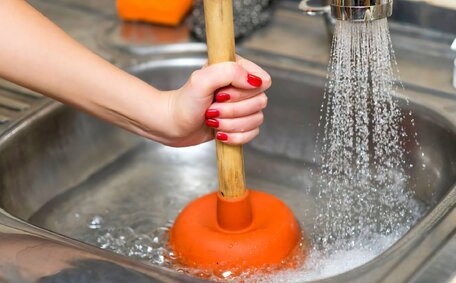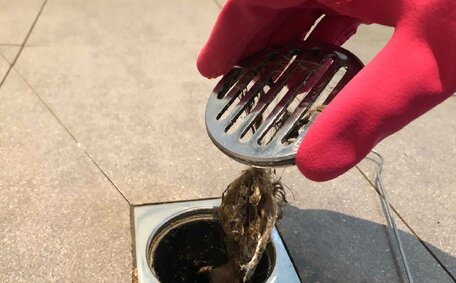Introduction to Epoxy Resin Pipe Relining
In Strathfield, Sydney, epoxy resin pipe relining is becoming the preferred alternative to traditional pipe replacement, offering an efficient solution for pipe repair. Strathfield Plumbing champions epoxy resin relining as a highly effective method for restoring degraded pipes without major construction.
Epoxy resin works by coating the inside of pipes with a protective waterproof barrier. A resin saturates into the existing pipe, repairing cracks and holes by essentially creating a 'pipe within a pipe’. Once cured, the product can leave pipes structurally sound and restored to optimal condition.
Unlike traditional pipe replacement, which demands heavy equipment, epoxy resin relining offers minimal disruption. Its longevity competes with, or even exceeds, new piping, despite the simpler process.
Our guide delves deeply into the lifespan of epoxy resin, a key to ensuring Strathfield’s long-term plumbing efficiency. We cover the science behind what makes it so hardy, variables affecting its durability, and tips for maximising its performance over time.
What is the Average Lifespan of Epoxy Resin Pipe Relining?
Correctly installed high-quality epoxy resin can extend pipe relining’s lifespan to between 50 and 100 years. This is comparable to, or even better than, traditional piping while avoiding extensive renovations.
However, the actual lifespan can vary based on multiple factors which we will explore below. Epoxy resin bestows remarkable durability upon pipes through its protective qualities and strengthens their structure. A fully cured epoxy barrier is waterproof and resistant to corrosion and chemicals.
The resin soaks deep into cracks and holes, bonding securely to fuse pipes back into shape. This process restores the pipe’s flow efficiency close to its original capacity. Routine maintenance ensures that high-quality epoxy relining keeps Strathfield’s plumbing operational for many years before requiring replacement.
Pipe Material and Relining Method
The original pipe material is a key factor affecting epoxy resin lifespan. Our expert Strathfield plumbers carefully examine pipes first to determine compatibility and best application methods.
Relining generally works for most piping materials like PVC, concrete, clay, steel, copper, galvanised iron, fibreglass and lead. But cast iron and asbestos cement pipes require special epoxy formulations to bond correctly. We select resins designed specifically to adhere long-term to each material.
The method of application is also a crucial factor. Epoxy can be applied by hand for small jobs, but larger relining projects use robotic devices for even coating. We determine the most suitable method to maximise resin lifespan.
Proper curing time is equally important so the epoxy bonds completely to the aged pipe surface. Our plumbers follow exact curing instructions to ensure a seamless barrier that will last for decades.
When original pipe material and epoxy resin are well-matched, and application/curing done properly, Strathfield clients can expect exceptional durability from 50-100 years before pipes require further restoration.
Environmental Factors Affecting Epoxy Resin Lifespan
Exposure to certain environmental conditions can impact how long does epoxy resin pipe relining lasts before needing restoration.
Temperature variations can accelerate epoxy degradation over time. Excessive heat over 60°C or severe cold under 5°C can lead resin to grow brittle and crack. Strathfield’s temperate climate mitigates these risks, though the lifespan can still be affected by hot water within pipes.
The pH balance of flowed liquids also plays a role. Generally, pH levels between 5-9 are safe for long resin lifespan. But abnormalities from chemical disposal require vigilance.
Acidic substances below pH 3 or alkaline above pH 10 degrades epoxy more rapidly.
Certain solvents like acetones, MEK or concentrated bleach can permeate and dissolve epoxy linings. We advise clients to minimise direct contact with strong chemicals that may be flowing through pipes unexpectedly.
By being aware of ambient temperatures, pH levels and chemical exposure risks, Strathfield homeowners can help preserve their epoxy pipe relining for exceptional durability lasting 50-100 years.
Temperature
As temperature extremes accelerate breakdown of epoxy resins, Sydney’s moderate climate provides a sweet spot for longevity. However, internally hot water flows still impact durability over decades of use.
Sustained heat beyond 60°C causes epoxy to become brittle and eventually crack apart. Similarly, cold environments under 5°C also decrease flexibility. Thankfully Strathfield’s 10-30°C ambient range avoids this brittleness threshold.
However, water temperatures exceeding 50°C can gradually erode internal pipe linings. We recommend tempering with cold water before discharge to prolong lifespan. Thermostatic mixing valves automatically regulating temperature are another good safeguard.
Avoiding drastic temperature spikes preserves resilient epoxy coatings. With some simple precautions for hot water systems, quality resin relining should easily outlast traditional piping for 50-100 years in Sydney’s hospitable climate.
pH Levels
The pH level, measuring water’s acidity or alkalinity, also affects epoxy resin lifespan when pipe relining. Prolonged exposure to extremely high or low pH causes deterioration.
Epoxy compounds rapidly degrade when exposed to substances with a pH lower than 3. Epoxy resin relining deteriorates faster when exposed to highly corrosive liquids. Conversely, alkaline environments above pH 10 also degrade resin integrity over time.
Maintaining water pH levels from 5-9 assures safe and enduring epoxy resin performance. Strathfield’s water supply maintains a neutral pH of about 7, optimal for the longevity of relined pipes. But abnormalities could occur from chemical disposal altering pH balance.
We advise clients to minimise direct contact between epoxy lined pipes and very acidic or alkaline fluids where possible. Be aware of all substances entering drainage to help preserve pH at safe levels.
With pH levels in the 5-9 range, premium resin relining is geared to safeguard Strathfield’s plumbing throughout its anticipated 50-100 year lifespan.
Chemical Exposure and Wear
Exposure to certain solvents and chemicals can cause epoxy resin pipe relining to deteriorate prematurely in both residential and commercial contexts.
In industrial Strathfield settings, substances like paint thinners, chlorine bleach, battery acid or chemical cleansers could unexpectedly permeate pipes. Over time, these strong solutions dissolve protective epoxy linings from the inside.
Prolonged exposure to concentrated household cleaners, pesticides, or other abrasive chemicals can slowly compromise the structural integrity. Gradually resin linings become brittle and cracked.
We advise clients to avoid routing aggressive fluids directly through epoxy-lined pipes wherever possible. Be mindful of all chemical substances discharged through drains or plumbing to help preserve longevity.
Responsible chemical handling should enable quality epoxy to resist normal wear for 50 to 100 years before needing restoration. But accidents do occur, so contact Strathfield Plumbing if you suspect internal pipe damage from corrosive exposure.
Maintaining Epoxy Resin Relining
Routine upkeep prolongs the exceptional durability of epoxy resin relining, spanning 50-100 years.
Annual inspections can reveal problems from minor pinholes to significant cracks that might need repairs. We thoroughly examine the internal lining and test for leaks or flow issues.
A thorough cleaning every five years prevents mineral buildup and corrosion, which can erode the epoxy over time. We safely clear any grime without damaging the lining.
For ongoing protection, epoxy sealants smoothly patch minor scratches occurring from typical abrasive wear. More serious issues may require section replacement.
Being proactive avoids emergencies from failed pipes down the track. We help Strathfield homeowners safeguard their plumbing for lifelong performance through prompt checkups and maintenance as needed.
Choosing Certified Epoxy Products
When selecting an epoxy product for relining drinking water pipes, certification for safe contact is critical. We exclusively use epoxy resins and certified resin hardeners compliant with NSF/ANSI Standard 61, ensuring safe use with potable water.
This stringent standard confirms formulations contain no toxic contaminants that could leach chemicals into drinking water over time. Certified epoxy sustains water purity, posing no health risks post-curing.
Beyond safety, Standard 61 also evaluates resin suitability for longevity in water environments. Testing evaluates the product’s structural stability, curing efficacy, and resilience to temperature variations and chemical exposure across many years.
Certified epoxy must pass accelerated simulation of years of potable water contact. Only products confirming exceptional durability earn approval. This gives peace of mind that relining won’t fail prematurely.
So for Strathfield homeowners, certified epoxy resin brings assurance on both fronts of safety and durability. Epoxy resin lining exceeds the lifespan of traditional piping, upholding the water supply’s integrity.
Strathfield Plumbing uses only epoxy products that meet NSF/ANSI Standard 61. We help clients make informed choices to protect health and extend longevity when reinforcing their potable water plumbing.
Case Studies and Real-World Applications
With over 20 years’ experience providing pipe relining services in Strathfield, we have seen firsthand the exceptional durability epoxy resin offers in real-world applications.
Take the case of a commercial building complex needing emergency drainage restoration. Corroded cast iron pipes were leaking sewage under the property, requiring rapid containment. Rather than major digging, we relined 1 km of difficult-to-access piping over 3 days using high-grade epoxy resin.
Since the project’s completion in 2005, there has been no occurrence of leaks or other issues. Annual checks consistently find the epoxy barrier in perfect condition despite 17 years of heavy use. The owners continue operating disruption-free, avoiding a hugely expensive replacement job.
Equally notable was the successful relining of old lead drainage pipes in a heritage-listed residence. Despite severe decay leading to groundwater seepage, swift epoxy resin application waterproofed the structure, preserving the original materials in line with its heritage status. After over three decades, the relining endures unscathed.
These real-world examples reinforce why we strongly recommend epoxy pipe relining to Strathfield residents needing plumbing restoration. The technology offers proven longevity far beyond traditional piping when quality materials and professional installation align.
As the area’s premier experts, Strathfield Plumbing blends extensive relining expertise with top-tier epoxy products for both residential and commercial applications. Contact us today for a long-term piping solution guaranteed to outlast stopgap replacements.





